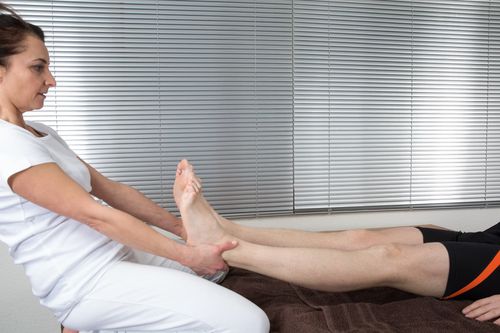What is Remedial Therapy?
Remedial therapy refers to any therapeutic approach for relieving or treating pain, injury or disease. Several natural healing modalities can treat various conditions and help the mind, body and spirit recover, including remedial massage, homeopathy, naturopathy, Ayurveda, herbal medicine, acupuncture and Reiki, to name a few.
Apart from physical pain and discomfort, remedial therapy eliminates energy and emotional blockages that cause stress, anxiety, depression, sadness and other negative feelings. The absence of all these enhances the body's innate ability to heal, and optimal health ensues.

Why Study Remedial Therapy?
Studying remedial therapy equips you with the power to activate the body's natural healing mechanism. You can use it to address an array of ailments and conditions, reducing people's dependence on synthetic medications that only provide temporary relief. Moreover, you can use what you learn to collaborate with other health practitioners, including those who practise conventional medicine, as remedial therapy happens to be an extremely useful adjunctive therapy.
What Does It Take to Study Remedial Therapy or Become a Practitioner of It?
To fix the problem and get the mind and body functioning normally again is a remedial therapist's goal. This should be first and foremost in your mind as a student, as there exists no other option for a remedial therapist but to treat the core of a health issue. As well as good body mechanics, being persistent and having excellent communication skills and a positive mindset matter a great deal on the job.
Course and Study Options for Remedial Therapy
There are different learning pathways to becoming a remedial therapist. You can complete a certification course, a diploma-level qualification or a bachelor's degree. Depending on the program you choose, you may complete the coursework on-campus or in an online learning environment. Many schools that offer online education employ advanced tools such as interactive videos and discussion boards. Besides allowing students to study at their own pace, this strategy ensures a valuable learning experience.
How to Choose a School or Course in Remedial Therapy
Before school hunting, visualise your goal and put it down on paper. This will help you stay on track as it's so easy to get lost in a sea of options. From the options made available to you, narrow down your list to those recognised by professional bodies in your industry.
Suppose you're looking at taking a Diploma of Remedial Massage, the curriculum of the school you're eyeing must be accredited by Massage Association of Australia (MAA) and Massage & Myotherapy Australia (MMA). Now let's say you're considering a bachelor's degree in naturopathy, then the course provider must be registered with the Australian Register of Naturopaths and Herbalists (ARONAH).
Besides the school's accreditation, you also want to take the instructors, course fees, delivery method and prerequisites for the training program into account as these will all have a direct impact on your education. We have provided a comprehensive list of qualified course providers at the top of the page to assist you on your journey to becoming a remedial therapist. After going over the details of their offerings, contact a course advisor from each of your top three choices to ensure that you land in the best one.





